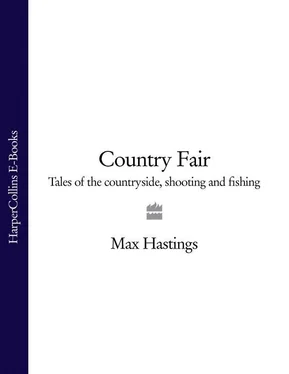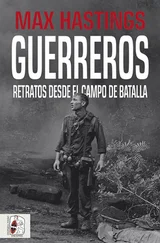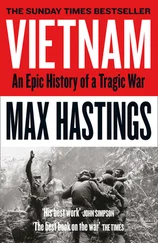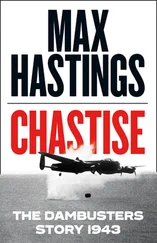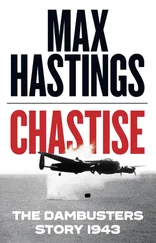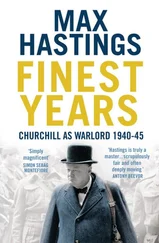Country Fair
Tales of the Countryside, Shooting and Fishing
Max Hastings
For Nigel and Anna, with whom I have shared so many happy sporting memories over forty years
Cover Page
Title Page Country Fair Tales of the Countryside, Shooting and Fishing Max Hastings
Introduction
1 Country Fair
2 Rhythm of the Seasons
3 The River Keeper
4 Sunshine and Showers
5 The Young Entry
6 Life at the Trough
7 Duffers’ Days
8 Hit and Miss
9 Love Affair With Labs
10 A Future for the Countryside
11 No Eye for a Horse
12 Poachers’ Roles
13 Naver Magic
14 With the Beaters
15 Every Shot a Record
16 An Idyll in Kenya
17 Tweed at Autumn
18 Pheasants
19 The English and the Scots
20 A Fishing Party
21 Rummage in the Gun Cupboard
22 Rough and Smooth in Cornwall
23 Hitting Some Low Notes
24 Glorious Grouse
25 Arctic Waters
26 Nightlife
27 Saying Please and Thank You
28 Level Pegging
29 New Ways and Old
30 Places we Know
31 Pigeons in the Offing
32 Marauders do it in the Rough
Index
By the same author
Copyright
About the Publisher
I N THE EYES of most people likely to read this book, as well as in my own, the countryside is fundamental to the vision of the Britain which we love, and to which we bear allegiance. This is why we find it so distressing today to be ruled by a government which not only cares nothing for the rural community, but has shown itself contemptuously hostile to it. The countryside and its inhabitants are perceived by New Labour as anachronisms, reflecting traditions of patrician paternalism, plebeian deference and bloody pastimes which have no place in the pavement society Tony Blair and his party aspire to enforce. While Labour claims to have abandoned the old ideals of socialism, it displays a disdain for rights of private ownership of a single commodity – land – which would be deemed intolerably socialistic if applied to any other form of property. New duties of care are thrust upon landowners, even as a host of new rights of access are granted to the public. The government proposes a programme of housing development which, if it is fulfilled, will carpet in concrete great tracts of fields and woodland, poisoning the green lungs of this overcrowded island, and especially its south-eastern corner. Foremost among the aspirations of rural dwellers today is a desire to see those who rule us once again acknowledge the virtue and importance of Britain’s countryside to our society, not as a mere park in which the urban population can seek recreation at appointed hours on licence, but as a place where wilderness sustains its historic freedoms, not least those of the hunter, both animal and human.
This book is intended to serve two purposes: first, like my earlier country collections, to entertain rural sportsmen with tales of the pleasures which we share, embracing fields and streams, dogs and guns, rods and horses. Second, at a time when the traditional rural community feels imperilled as never before, I have included essays on two critical issues: the struggle to sustain our landscape, and the tensions between English and Scots, a source of concern to all of us for whom the Union of the two kingdoms means so much. I hope that these more sombre pieces will not jar on readers to whom I am otherwise seeking to offer a little bedside amusement.
Even in these troubled times for rural Britain, I cherish a spirit of optimism, inspired by the happiness which so many of us still gain from the countryside. One of my favourite pastimes, while casting a fly or waiting for a drive to begin, is to muse upon the same experiences in the days of our ancestors. A sense of continuity, of doing things which they did, in the old settings, is one of the deepest satisfactions of field sports. As they look down upon our doings with horse, rod and gun, how pampered they must think us! First, mobility offers free rein. We think nothing of driving from London to Wiltshire or Hampshire for a few hours’ fishing. I set out from Berkshire the other day to shoot in Devon, and came home easily enough the same evening. I am untroubled by driving to Wales to throw a line, then returning to sleep in my own bed. We can journey to Sutherland – or for that matter, to Russia or Iceland – inside a day.
We pay a price, in that some of the thrilling remoteness has gone from these places. So, too, has the intimacy which attached to a shooting party when guns, beaters and pickers-up lived within a few miles of the meeting place. Everybody knew each other, and the coverts. Today, one often meets a picker-up who has come from thirty miles away, or beaters who travel regularly from distant towns. Shooting and fishing parties forge their own sense of community, but this is seldom now rooted in local geography.
We are much better equipped to face the elements than earlier generations. My father shot in a tailor-made tweed jacket cut loose at the elbows. Waterproof it was not, any more than were his canvas Newmarket boots. Today, conditions must be very damp indeed for water to penetrate to the places where it made our grandparents so uncomfortable. Guns have not changed at all – indeed, many of us shoot with weapons built almost a hundred years ago. As a child, I enjoyed watching my father performing alchemist’s rites with powder and shot as he loaded his own cartridges. I occasionally experimented with the process myself, much to the alarm of anyone who later found my overcharged rounds in his gun. But it would be hard to argue that sporting life is poorer now that everybody fires factory-loaded ammunition. When did you last see someone having to use a cartridge extractor?
Fishing rods are wonderfully improved. One would have to be very sentimental to prefer an old greenheart to a new Sage. I am no longer even convinced that old reels are better: I would rather play a modern salmon on a modern reel. Of my father’s old tackle, I use only a couple of cane brook rods on chalk streams. Thank heaven fishermen no longer have to grease silk lines or dry gut casts at the end of a day!
Edwardian shooting parties provided opportunities for an orgy of adultery, facilitated by the fact that in large Norfolk or Yorkshire country houses, husbands and wives occupied separate bedrooms. Nowadays, when most of us inhabit more modest quarters, it requires considerable ingenuity for a couple bent on infidelity to find space to swing a cat, never mind themselves, amid a houseful of visiting guns. A friend once told me that a billiard table provided the most discreet rendezvous that she and her weekend quarry could commandeer for naughtiness. Edward VII would have been proud of her. A big shot like Sir Ralph Payne-Galway would have deplored her bloke’s frivolous attitude to more serious purposes.
My father sought to convince me that only activities in which one engages actively and individually – notably hunting, shooting and fishing – can properly be described as sports. Soccer and rugger, he suggested dismissively, are mere games. Most of those who call themselves ‘sports enthusiasts’ are content to spectate, usually from an armchair at home. The old boy has lost that argument, I am afraid. Games reign supreme in public esteem, however dismaying the behaviour of some of those who play them.
The saddest change since father’s era is the fungus-growth of hostility towards traditional sports. The other day, I was driving a car full of guns along a bridlepath on the Berkshire Downs. Our convoy was careful to slow and steer aside from ramblers we met. I tried ‘Good mornings’ out of the window to each of them, but was rewarded only by stony stares. They had seen and heard us banging away, and did not like it. The sight of a pheasant falling wounded or dead from the sky is repugnant to many such rural visitors. It seems sensible to spare their sensitivities by seeking to shoot discreetly. It is no longer a good idea to run drives within sight of a public road.
Читать дальше
